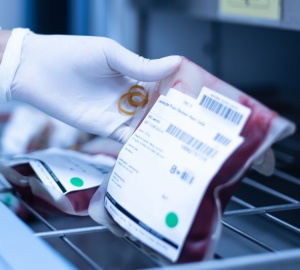
When planning research that depends on fresh human blood products, selecting the most suitable source can make a significant difference to the quality and reliability of your results. In most cases, researchers have three main supply options:
- National or regional public blood collection services
- Donors recruited internally within your organisation
- Specialist commercial blood collection suppliers
Each route comes with its own benefits and drawbacks. Below, we compare these options to help you decide which is best for your specific study needs.
1. National & regional public blood collection services
Public voluntary donation services collect blood, tissues, and organs primarily for clinical use. When donations are deemed unsuitable for transfusion, they can be made available for research purposes, providing access to whole blood for research, research plasma, and leukocyte reduction cones. These can support a variety of experimental applications but the supply may not always align perfectly with your study requirements.
Advantages
- Wide availability of different biospecimen types, including whole blood, plasma, and leukocyte cones.
- Generally low cost compared with other sources.
Limitations
- Limited control over collection and processing: public donation systems follow transfusion-focused protocols, meaning researchers have little influence over anticoagulant choice, collection vessels, or processing timelines.
- Restricted donor selection: you cannot pre‑screen donors for specific characteristics such as age, BMI, ethnicity, medication use, or lifestyle factors.
- Variable supply: availability depends on surplus from clinical collections, which can make planning difficult.
- Consent constraints: donors typically give broad consent for research, but this may not extend to all genetic or commercial applications.
Summary
Public blood services can be a cost‑effective way to obtain research samples, but they may lack the flexibility, customisation, and supply consistency needed for specialised studies.
2. Internal donors from your organisation
Some laboratories source blood from volunteers within their own staff or student community. This can be a convenient and rapid way to obtain fresh samples but it has important considerations.
Advantages
- Immediate access: samples can be processed and used within minutes of collection.
- Low cost: no significant purchasing or transportation costs.
Limitations
- Small donor pool: diversity and volume may be insufficient for large studies or those requiring strict donor criteria.
- Ethical and privacy concerns: donors must provide informed consent, data must be anonymised, and IP rights clarified.
- In‑house workload: collection and processing fall to your lab team, requiring training, equipment, and time.
- Protocol inconsistency: collection may vary between donors and sessions, affecting reproducibility.
Summary
Internal donors can be ideal for quick, small‑scale studies, but may not meet the diversity, scale, or quality control requirements for complex research such as PBMC isolation or cell‑based immunology assays.
3. Specialist commercial blood product suppliers
Commercial suppliers specialise in providing blood products tailored for research. They can deliver whole blood, PBMCs, buffy coats, and research‑grade plasma collected and processed according to your exact specifications. Many also excel at PBMC isolation and separation, supporting high‑quality immunology, biomarker, and translational research.
Advantages
- Reliable supply: fresh samples delivered on schedule, often same‑day or within 24 hours.
- Custom donor selection: choose based on age, gender, ethnicity, blood type, medical history, and more.
- Flexible processing: control anticoagulants, collection vessels, separation protocols, and storage formats.
- Wide product range: from fresh whole blood to processed PBMCs and plasma.
- Ethical compliance: donors give explicit consent for a wide range of research uses, including genetic and commercial studies.
Limitations
- Higher cost: quality, flexibility, and guaranteed supply come at a premium price.
Summary
For research projects where precision, reproducibility, and specific donor criteria are essential, specialist suppliers are usually the most reliable and scientifically robust choice.
Choosing the best fit for your study
Your ideal source of blood products will depend on your priorities:
- Budget‑driven studies: public blood services offer affordable access but with limitations on customisation and reliability.
- Small‑scale, time‑critical projects: internal donors can provide fresh samples quickly, though diversity and standardisation may be lacking.
- High‑precision or large‑scale research: specialist commercial suppliers deliver consistency, flexibility, and quality assurance.
Partnering with a reliable blood products provider like Research Donors ensures your study has the biospecimens it needs when you need them, and in the format that best supports your research objectives.
This blog was adapted from Research Donors original content.
